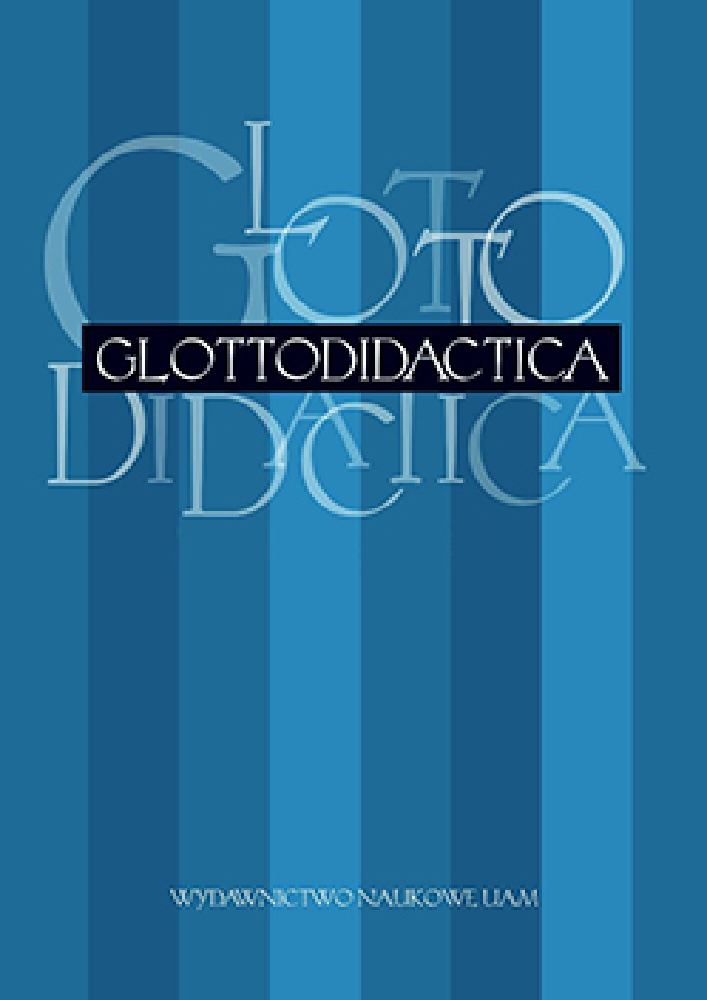Résumé
Studies conducted on teacher identity have mostly focused on preservice language teachers. By contrast, this study looks at the professional identity of a veteran teacher of French as a foreign language in Poland. It describes a two-stage biographic study in which the narratives obtained are subjected to semantic deconstruction with the application of Bamberg’s (2010) model of identity. To this end, the author investigates: 1) what is constant and what changes in the participant’s professional career in terms of the emotions she experiences, 2) what are the similarities and differences between the teachers she refers to and herself, 3) what is the role of agency in the participant’s professional decisions. Through the analysis, the Author seeks to find out with what content Bamberg’s identity pillars may be filled, what teacher emotions and feelings can be inferred from what is said, and what insights can be gained into the identity of a French language teacher in Poland.
Références
Bamberg, M. (2010). Who am I? Narration and its contribution to self and identity. Theory & Psychology, 21 (1), 1-22. DOI: 10.1177/0959354309355852.
Barkhuizen, G. (2017). Reflections on Language Teacher Identity Research. New York: Routledge.
Benesh, S. (2017). Emotions and English language teaching. New York: Routledge.
Benesch, S. (2018). Emotions as agency: Feeling rules, emotion labor, and English language teachers’ decision-making. System, 79, 60–69. DOI: org/10.1016/j.system.2018.03.015
Ekman, P. (2003). Emotions revealed: Recognizing faces and feelings to improve communication and emotional life (2nd ed.). New York: Owl Books.
Finlay, L. (2002). ‘Outing’ the researcher: The provenance, principles and practice of reflexivity. Qualitative Health Research, 12 (3), 531-545. DOI.org/10.1177/104973202129120052.
Gee, J. P. (2001). Identity as an analytic lens for research in education. Review of Research in Education, 25, 99-125. DOI: org/10.2307/1167322.
Gkonou, C. / Dewaele, J-M. / King, J. (2020). The emotional rollercoaster of language teaching. Bristol: Multilingual Matters.
Hochschild, A. R. (1979). Emotion work, feeling rules, and social structures. Journal of Sociology, 85(3), 551-575.
Mercer, S. / Kostoulas, A. (2018). Language teacher psychology. Bristol: Multilingual Matters.
Pennington, M. (2015). Teacher identity in TESOL: a frames perspective. In: Y. L. Cheung, S. Ben Said, K. Park (eds.), Advances and current trends in language teacher identity research (pp. 16-30). New York: Routledge.
Plutchik, R. (1980). A general psychoevolutionary theory of emotion. In: R. Plutchik, H. Kellerman (eds.), Emotion: Theory, research, and experience (Vol.1). Theories of emotion (pp. 3-33). New York: Academic Press.
Richards, J. C. (1998). Textbooks: Help or hindrance in teaching? In: J. C. Richards (ed.), Beyond training (pp. 125-140). Cambridge: Cambridge University Press.
Rudolph, N. / Selvi, A. F. / Yazan, B. (2020). The complexity of identity and interaction in language education. Bristol: Multilingual Matters.
Russell, J. (1991). Culture and the categorization of emotion. Psychological Bulletin, 110 (3), 426-450. DOI: DOI:10.1037/0033-2909.110.3.426.
Sampson, R. J. / Pinner, R. S. (2021). Complexity perspectives on researching language learner and teacher psychology. Bristol: Multilingual Matters.
Song, J. (2016). Emotions and Language Teacher Identity: Conflicts, Vulnerability, and Transformation. TESOL Quarterly, 50(3), 631–654. DOI:10.1002/tesq.312.
Thompson, A. S. (2021). The role of context in language teachers’ self-development and motivation. Bristol: Multilingual Matters.
Trent, J. (2015). Towards a multifaceted, multidimensional framework for understanding teacher identity. In: Y. L. Cheung, S. Ben Said, K. Park (eds.), Advances and current trends in language teacher identity research (pp. 44-58). New York: Routledge.
van Veen, K. Sleegers, P. / van de Ven, P-H. (2005). One teacher’s identity, emotions, and commitment to change: A case study into the cognitive-affective processes of a secondary school teacher in the context of reforms. Teaching and Teacher Education, 21, 917-934.
Varghese, M. / Morgan, B. / Johnston, B. / Johnson, K. A. (2005). Theorizing language teacher identity: Three perspectives and beyond. Journal of Language, Identity, and Education, 4(1), 21-44. DOI: 10.1207/s15327701jlie0401_2
Wenger, E. (1998). Communities of Practice: Learning, Meaning and Identity. Cambridge: Cambridge University Press.
Werbińska, D. (2017). The Formation of language teacher professional identity. A phenomenographic - narrative study. Słupsk: Wydawnictwo Akademii Pomorskiej.
Zembylas, M (2004). The emotional characteristics of teaching: an ethnographic study of one teacher. Teaching and Teacher Education, 20, 185-201. DOI: 10.1016/j.tate.2003.09.008.
Zembylas, M (2005a). Discursive practices, genealogies, and emotional rules: A poststructuralist view on emotion and identity in teaching. Teaching and Teacher Education, 21, 935-948. DOI: /10.1016/j.tate.2005.06.005.
Zembylas, M (2005b). Teaching with emotion: a postmodern enactment. Greenwich, Conn.: Information Age Publishing,
Licence
 This work is licensed under a Creative Commons Attribution-NoDerivatives 4.0 International License.
This work is licensed under a Creative Commons Attribution-NoDerivatives 4.0 International License.
Authors
Authors of texts accepted for publication in Glottodidactica are required to complete, sign and return to the Editorial team’s office the Agreement for granting a royalty-free license to works with a commitment to grant a CC sub-license.
Under the agreement, the authors of the texts published in Glottodidactica grant Adam Mickiewicz University in Poznań a non-exclusive, royalty-free license and authorize the use of Attribution-NoDerivatives 4.0 International (CC BY-ND 4.0) Creative Commons sub-license.
The authors retain the right to the free disposal of the work.
Users
Interested Internet users are entitled to use works that have been published in Glottodidactica since 2016, under the following conditions:
▪ attribution – obligation to provide, together with the distributed work, information about the authorship, title, source (link to the original work, DOI) and the license itself.
▪ no derivatives – the work must be preserved in its original form. Without the author's consent, it is not possible to distribute the modified work in the form of translations, publications, etc.
Copyrights are reserved for all texts published before 2016.
Miscellaneous
Adam Mickiewicz University in Poznań retains the property right as a whole (layout, graphic form, title, cover design, logo etc.).
Privacy statement
The names and email addresses published on this journal site will be used exclusively for the purposes declared by this journal and cannot be used for any other purpose or by any other party.





